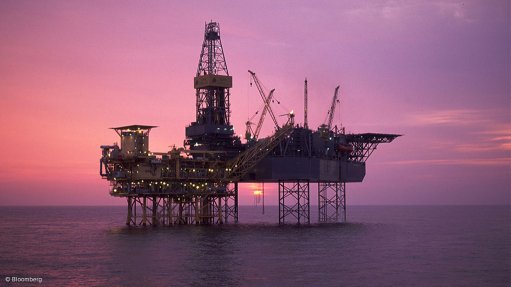
Photo by: Bloomberg
With the current oil price hovering at $50/bl, governments will come under increasing pressure to entice investors not to put their oil and gas exploration and production projects on hold, says Martin Kavanagh, partner in global law firm Herbert Smith Freehills, which recently announced the opening of its first Africa-based office, in Johannesburg.
He expected the oil price to remain at around $50/bl in the short term and to push up to not much higher than $70/bl within the next two to three years.
Kavanagh suggested that African governments lighten the regulatory load and offer possible tax breaks to make it attractive for investors during the “tough times”.
He told Engineering News Online that governments could also look at what they could do to put better infrastructure, such as onshore pipelines, in place.
“They could also get creative by saying they could reduce government’s share in projects unless the oil price goes above a certain level.”
Kavanagh said many investment decisions were made when commodity prices were high. For instance, when oil was at $120/bl and iron and copper were very valuable.
“They operated in a regime where prices were high, but there was fat in the margin to deal with that.”
He said the smaller, independent oil and gas companies that were in joint ventures with major players, in particular, were feeling the impact of lower oil prices.
“In Africa, many oil and gas projects are joint ventures. Independent companies have one or two assets. They don’t have the option of doing nothing for two years while they wait for a higher oil price. This creates a lot of tension between the smaller companies and the large companies, who have many assets and can afford to sit tight.”
Independents such as Anadarko, Africa Oil, Noble, Oando and Ophir, who were active in Africa, were feeling the crunch, Kavanagh pointed out.
He said established oil-producing countries, such as Algeria, Nigeria, Equatorial Guinea and Angola, which were producing and getting the best price they could, were in a better position than developing oil and gas markets, where companies could hold off on drilling and further investment.
“Countries like Mozambique, Tanzania and Uganda are going to feel this in the short term because they don’t have revenue flowing from their projects yet. If companies slow down their investments, this will impact them,” stated Kavanagh.
Herbert Smith Freehills advises governments, companies and banks on a range of issues, and has one of the largest teams of common and civil law lawyers dedicated to Africa work.
The global law firm, which has been active in Africa for the past 30 years, has 23 offices in 19 jurisdictions around the world, including London, Paris, Dubai and Singapore.
Global mining lawyer Peter Leon will be co-chair of the African practice in Johannesburg. He will be joined by Brigette Baillie, an energy and infrastructure finance lawyer who will join as a partner in the firm's highly successful Africa practice.